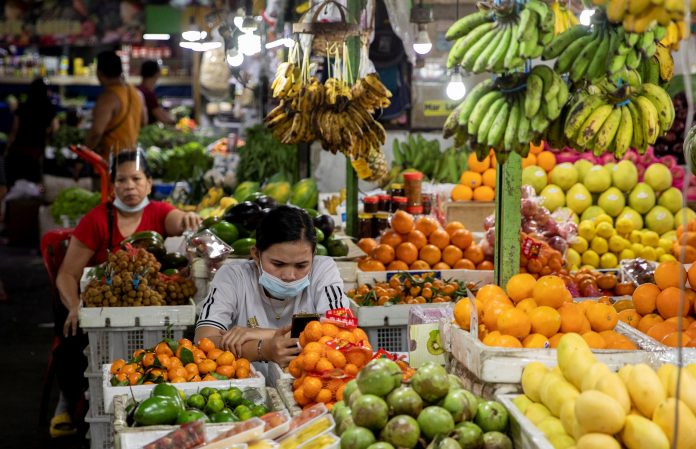Philippine inflation eased for the first time in six months in March as price increases for certain food items slowed down, but it stayed outside the central bank’s target range of 2%-4% for the year.
The Consumer Price Index rose 4.5% from a year earlier, versus a 26-month high of 4.7% in February, as the heavily-weighted food and non-alcoholic beverage group registered a slower rise, the Philippine Statistics Authority (PSA) said on Tuesday.
Last month’s inflation came in below the median forecast of 4.8% in a Reuters’ poll and within the central bank’s projected range of 4.2%-5.0% for March.
Core inflation, which excludes volatile food and fuel prices, was steady at 3.5%.
Prices increases for vegetables and fish decelerated but the closely-watched prices of meat products continued to rise at increasing speed, the PSA said.
The Philippine central bank said the latest headline figure was in line with expectations that inflation could settle above the target this year due to meat supply constraints.
Despite elevated inflation, the Bangko Sentral ng Pilipinas (BSP) has kept its benchmark interest rate at a record low of 2% since November, maintaining an accommodative policy stance to support an economy facing renewed challenges from fresh coronavirus curbs.
On Tuesday, BSP Governor Benjamin Diokno said current monetary policy settings remained appropriate but added the central bank was ready to take “immediate measures” while monitoring inflation pressures.
“Tighter domestic supply of meat products and improved global economic activity could lend further upward pressures on inflation,” he said.
The BSP, which reviews monetary settings every six weeks, will hold its next policy meeting on May 13.
“BSP will only consider recalibrating monetary policy should second-round effects such as wage hikes become apparent or if inflation expectations become disanchored,” ING senior economist Nicholas Mapa said.









